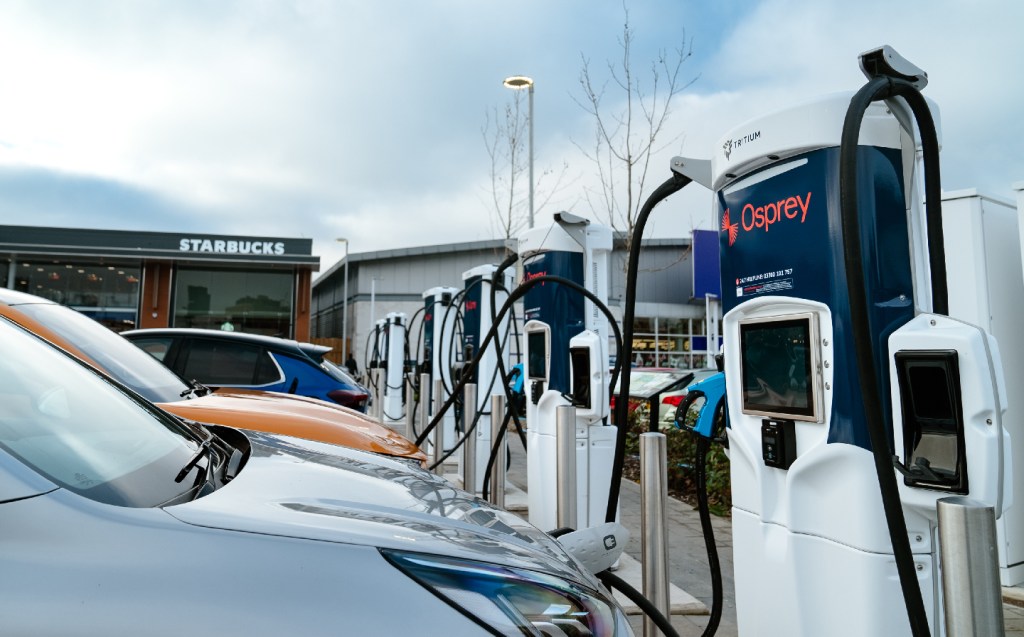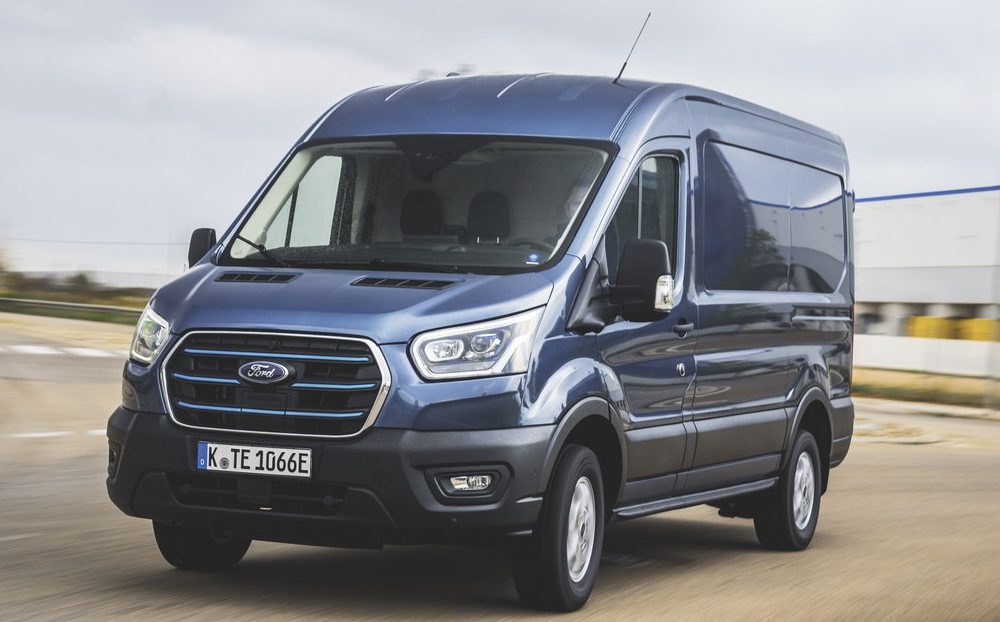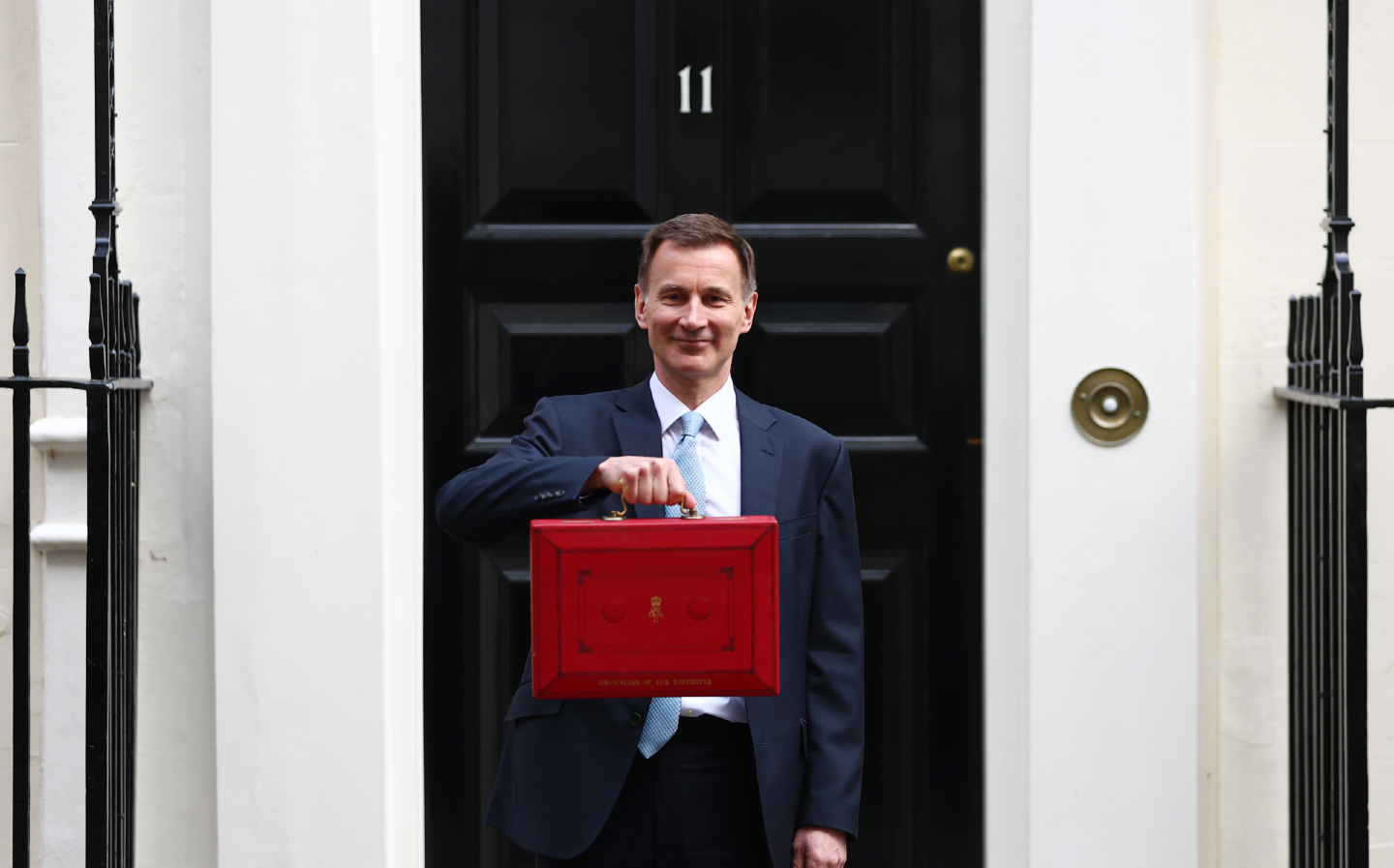Spring budget was ‘huge missed opportunity’, says EV charging firm
Buyers of electric vans also disappointed
The government’s spring budget was a “huge missed an opportunity” to boost EV uptake, according to the boss of one of the UK’s biggest public electric vehicle (EV) charging networks.
In his budget announcement yesterday, chancellor of the exchequer Jeremy Hunt confirmed a reduction in national insurance and a continuation of the fuel duty freeze that has been in place since 2011 but ignored calls to reduce the VAT on public EV charging from the current 20 per cent to the 5 per cent levied on home electricity.

Calls for the change have grown significantly since the increase in energy prices, caused partly by Russia’s invasion of Ukraine, and proponents of the change say it would make electric vehicle ownership more affordable.
The CEO of Osprey Charging, one of the largest public EV charging networks in the UK, said the failure to change the VAT rate in the Budget announcement failed to give EV drivers a much-needed leg-up.

“Today’s announcement of the spring budget from the chancellor is a huge missed opportunity to increase access to public EV charging for the UK’s drivers,” said Osprey’s Ian Johnston, who is also the chair of industry body Charge UK.
“There have been calls from across the industry to lower the VAT rate on public charging from 20 per cent to 5 per cent, in line with that of charging at home, which would be a massive boost for EV drivers and those considering the switch to electric.
“A VAT reduction would have gone a long way in supporting those without access to a domestic charger. Here at Osprey, we will continue to advocate for a reduction in VAT on public charging to see an equalisation with the VAT level on domestic charging.”
RAC agrees
It was a view echoed by the RAC, which described the differing rates as a “bizarre tax anomaly” that could have been corrected in the Budget.
“As things stand, anyone without a driveway is penalised by having to pay four times the rate of VAT when they charge their cars at a public charger, compared to anyone who is fortunate enough to charge up at home,” said RAC head of policy Simon Williams.
“There is a huge strength of feeling about this issue, with charging networks having committed to passing the savings on in full to drivers, so it’s enormously frustrating that the chancellor has chosen to look the other way on this important issue.”
The carmakers waded in on the matter, too, with the Society of Motor Manufacturers and Traders (SMMT) saying lowering the tax would have delivered “fairer tax for a fair transition”.
“An end to the VAT ‘pavement penalty’ on public charging would have energised the market,” said SMMT chief executive Mike Hawes. “With both government and industry having statutory requirements to deliver net zero, more still needs to be done to help consumers make the switch.”
Other motoring issues in the Budget
And the decision to retain VAT rates on public charging was not the only disappointment cited by the car industry, with a lack of movement on Insurance Premium Tax (IPT) and zero-emission van grants all bemoaned by industry figures.
The RAC described the decision not to reduce IPT — the tax levied on insurance premiums — as “enormously disappointing,” with Williams claiming the move would have helped to prevent “spiralling” motor insurance premiums rising further.
“Even the most careful and cautious of drivers will have to go on battling with rising premiums,” he said. “And younger drivers are disproportionately affected as they end up paying even more in tax on top of their already high premiums. Those hardest hit face two options: give up driving altogether or run the gauntlet and break the law by driving uninsured, neither of which are desirable outcomes.”

Meanwhile the Zero Emission Van Plan Coalition (ZEVPC), which lobbies for incentives for businesses to switch to electric vans, said the government had ignored the sector entirely, with no new incentives to encourage businesses into EVs, which are often more expensive than their combustion-powered counterparts.
The ZEVPC, which is led by the British Vehicle Rental and Leasing Association (BVRLA) and includes numerous van fleet operators, said the Budget left those wanting to switch to electric vans with more questions than answers.
“The chancellor is ignoring the fact that the van sector needs urgent support to adopt zero-emission vehicles,” said a ZEVPC spokesperson. “Vans account for about a fifth of the miles driven in the UK every year, the vast majority of which are driven by polluting models. While there were some positive moves to support van operators today, the van sector remains behind on decarbonisation.
“Cost is a major barrier to adoption. The discrepancy between affordability of EVs vs diesel equivalents is prohibitive. The Zero Emission Van Plan is clear in how that gap can be closed. Today, the Chancellor missed a golden opportunity to act. Increased fiscal support is essential. We will continue to push for such changes until tangible progress is made.”
Fuel duty still frozen at 2011 rates
However, Hunt’s budget did include a decision to maintain the current level of fuel duty for a further year. The freeze was introduced in 2011 by then-chancellor George Osborne, who decided to maintain fuel duty at 52.95p per litre, rather than increasing it incrementally over a period.
Although RAC data shows fuel prices are on the rise — up to averages of 145p per litre for petrol and 153p per litre for diesel — the organisation has welcomed the decision to maintain the current tax level.
“With a general election looming, it would have been a huge surprise for the Chancellor to tamper with the political hot potato that is fuel duty in today’s Budget,” said Williams. “It appears the decision of if or when duty will be put back up again has been quietly passed to the next government.”
Related articles
- If you were interested in response to the Spring Budget, you might like to read how a fuel price transparency policy could end inflated costs
- Is your car exempt from the ULEZ charge?
- Thinking of going electric? Read our guide to all the car makers’ EV plans
Latest articles
- Aston Martin Valkyrie AMR-LMH hypercar hits track ahead of 2025 Le Mans challenge
- Porsche has begun testing the electric Cayenne
- Cupra Leon 272 eHybrid 2024 review: Bigger battery, better tech … but is it a Cupra?
- Porsche 911 GTS 2024 review: Hybrid heresy or more Stuttgart genius?
- Extended test: 2023 Vauxhall Astra Sports Tourer GS PHEV
- Ford Capri revival has faced a lot of flak… but are buyers put off? Here’s what visitors to the Festival of Speed had to say
- F1 2024 calendar and race reports: What time the next grand prix starts and what happened in the previous rounds
- ‘No timeframe’ for how long Volvo’s returning estate cars will be on sale in UK
- Kia Picanto 2024 review: Updates add spice to cute Korean city car














